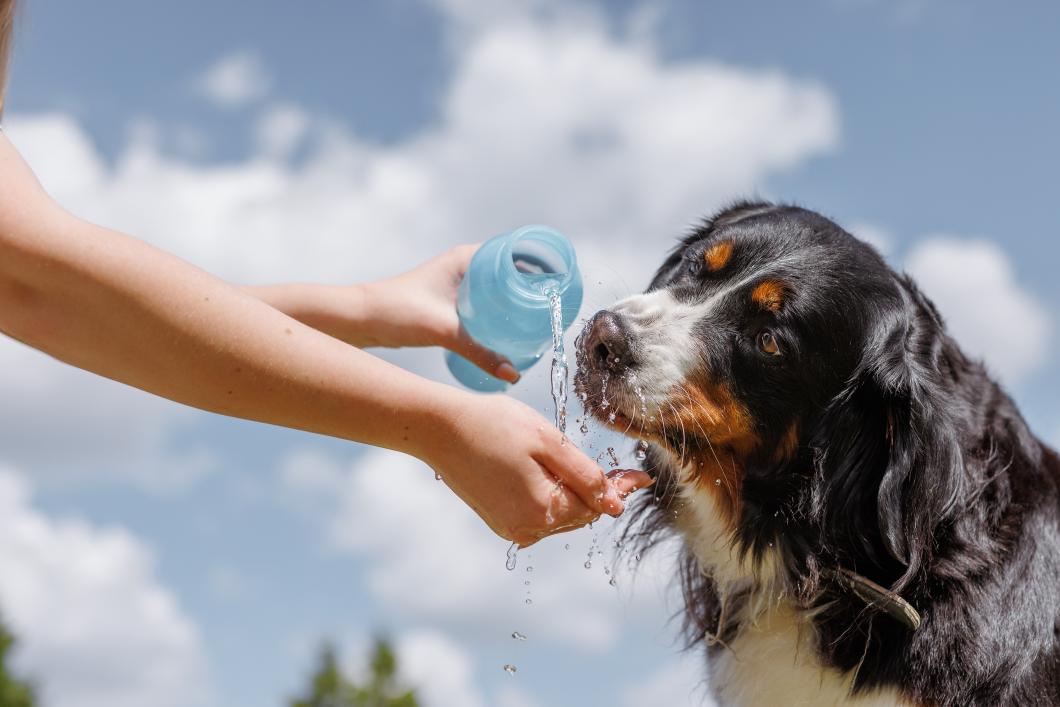Summer Hazards: Recognizing and Preventing Heat Stroke in Pets

As the mercury rises this summer, are you ready to rise to the occasion to keep your pet safe? Heat exhaustion and heat stroke in pets is a real summer safety concern, and our team wants to be sure that your pet keeps their cool.
What Does Heat Stroke for Pets Look Like?
Even when it’s not super hot, it is important to remember that pets are more prone to overheating than we are. They rely on panting to cool themselves, as they only have sweat glands in their paw pads.
When their internal body temperature stays above 104 for a sustained period, their internal organs can become damaged, and serious consequences can occur.
When you are outside or in a warm environment, be sure to monitor closely for signs that your pet is becoming distressed.
Early symptoms of heat stroke include:
- Panting
- Restlessness
- Increased respiratory rate
- Decreased activity level
- Drooling
- Vomiting or diarrhea
If your pet is exhibiting any of these signs, it is time to head indoors to a cooler environment.
If early symptoms of heat stroke are ignored, heat exhaustion can progress to weakness, incoordination, seizures, coma, and even death. Heat stroke in your pets is a true pet emergency.
Protecting Your Pet From the Heat
As the temperatures rise, so does the risk of heat stroke. You can help protect your pet, though, by:
- Never leaving your pet unattended in a vehicle, even for a short time
- Offering cool, fresh water at all times
- Providing access to shade and shelter
- Using extra caution with older pets, young pets, or pets with short noses like Bulldogs and Pugs
- Avoiding outdoor activities during the peak of the day
You can also encourage your pets to hydrate by offering ice cubes, a shallow wading pool, or trying a pupsicle. Keeping your pet cool can be fun.
Summer can be an enjoyable time to spend with your furry best friends. We hope that by helping you to be aware of the dangers of the heat, we can help you to avoid trouble this season. Don’t be afraid to reach out if you have questions or concerns this summer, or any other time of year.
